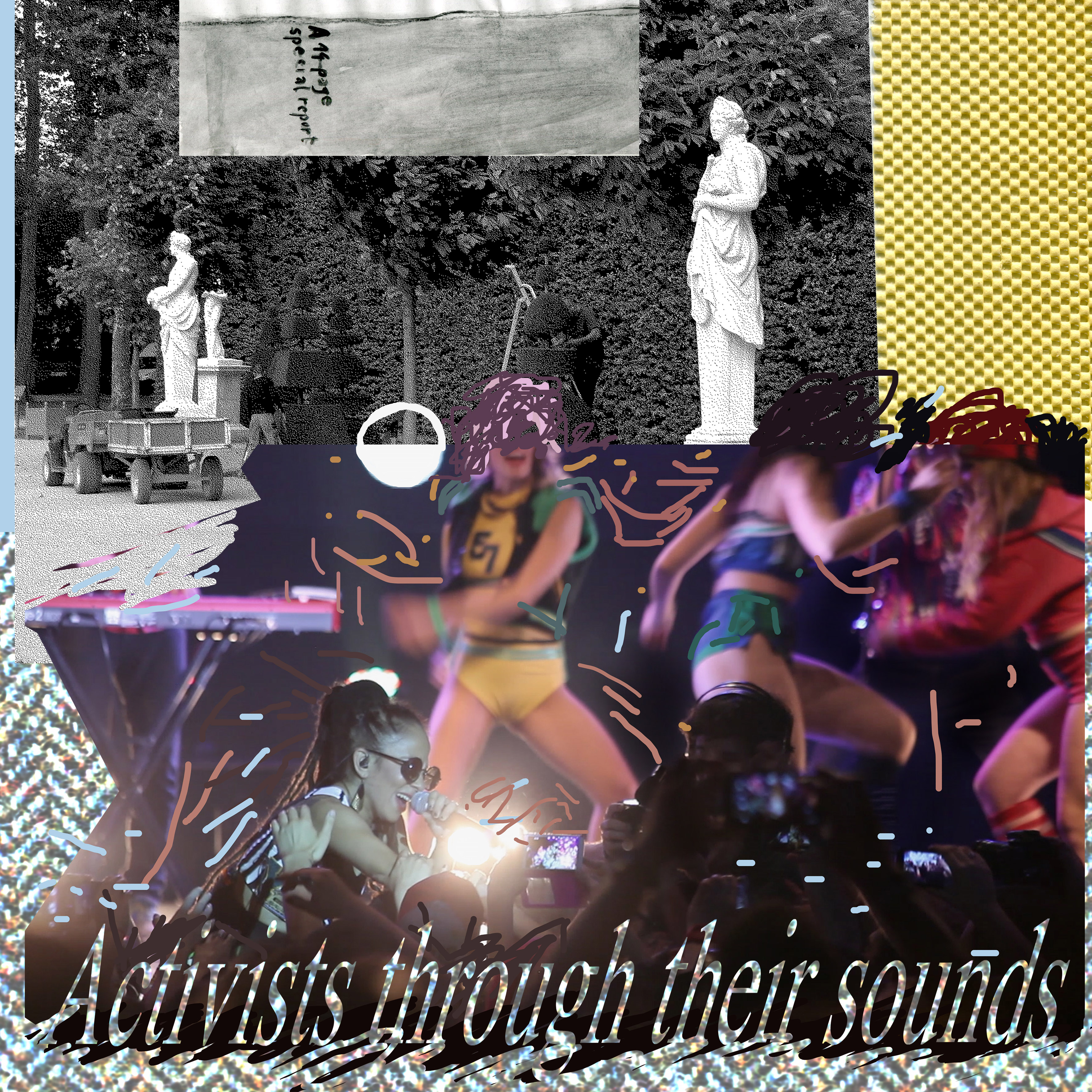
Intersectionality Rules
While applauding Marilina Giménez’s A Girl’s Band, a documentary about the contemporary Argentinian music scene from a gender perspective, Luisa Fernanda Uribe wonders if that’s all there is? She makes the case for plurality and an intersectional approach to entrenched problems, relevant not only to Latin America but also elsewhere.
→ Check all articles of this special
→ Download PDF with introduction and table of contents
Women in Latin America’s music industry are activists through their sounds. The stage is a battlefield against patriarchal and moralistic rules that want us relegated exclusively to private, intimate, and melodic or sweet spaces. That is the premise of A Girl’s Band, a documentary by Marilina Giménez, the former bass player in Buenos Aires electronic pop band Yilet, who takes us on a journey through the contemporary Argentinian music scene from a gender perspective.
Nowadays, that perspective is the most common one from which to address power issues in the music industry. It’s simple: The male narrative has excluded women for decades, so now we are talking about inclusion, representation of many artists, and initiatives that deserve our attention. We need to hear and amplify experiences such as those of Miss Bolivia, Las Taradas, Kumbia Queers, Chocolate Remix, or Las Kellies, as Giménez does in her film.
The Heart of the Problem
Nevertheless, thinking about the current political agendas of feminism in the region’s music industry and nightlife, some questions arise. Is our mobilization exclusively about representation or identity? And how do these personal struggles against patriarchal rules articulate a broader agenda of participation, negotiation of power, and problems of racial and economic inequality?
This broader perspective on what women have been doing in music scenes for years is urgent. Plurality is unavoidable if we want to address violence and inequality within these circuits. However, making gender the primary category somehow obscures other critical aspects of the music industry’s problems. What about racial disparities? Do we think of how the increasing monetization of certain rhythms and sounds (cumbia or reggaeton) erases racialized women’s history and participation in them? Are economic inequalities part of the equation when we condemn women’s exclusion? Which women we are talking about when we try to document the music industry from a gender perspective?

Room for Everyone
It is not that Giménez does not address any of these questions in her documentary. She builds a strong narrative of the music industry in Argentina through women’s perspectives on their careers, and relates that to other industry agents such as promoters, sound engineers, and the public. But there’s still a risk of pinkwashing or gender-mainstreaming nightlife and the music industry in Latin America. If gender is at the center of our analysis and political agenda, we will hardly address issues that define our diversity. We can easily be co-opted by discourses and practices that exclude the great majority of women in the region – women who live in the margins of the major cities and of the industry, who develop their music careers articulated through race, economics, and sexuality.
As Virginia Woolf suggests in her book A Room of One’s Own, yes, we have to make room for ourselves. But, instead of a private room or a girl’s one, we need to build more radical and collective spaces, answering questions about our privileges as agents of the music industry, even if we are women from the global South.
The film «A Girl’s Band» by Marilina Giménez was officially selected at the Norient Film Festival NFF 2021. See full program here.
This text is part of Norient’s essay publication «Nothing Sounds the Way It Looks», published in 2021 as part of the Norient Film Festival 2021.
Bibliographic Record: Rhensius, Philipp. 2021. «Editorial: NFF 2021 Essay Collection.» In Nothing Sounds the Way It Looks, edited by Philipp Rhensius and Lisa Blanning (NFF Essay Collection 2021). Bern: Norient. (Link).
Biography
Links
Published on December 18, 2020
Last updated on April 09, 2024
Topic
Why is a female Black Brazilian MC from a favela frightening the middle class? Is the reggaeton dance «perreo» misogynist or a symbol of female empowerment?
Snap




